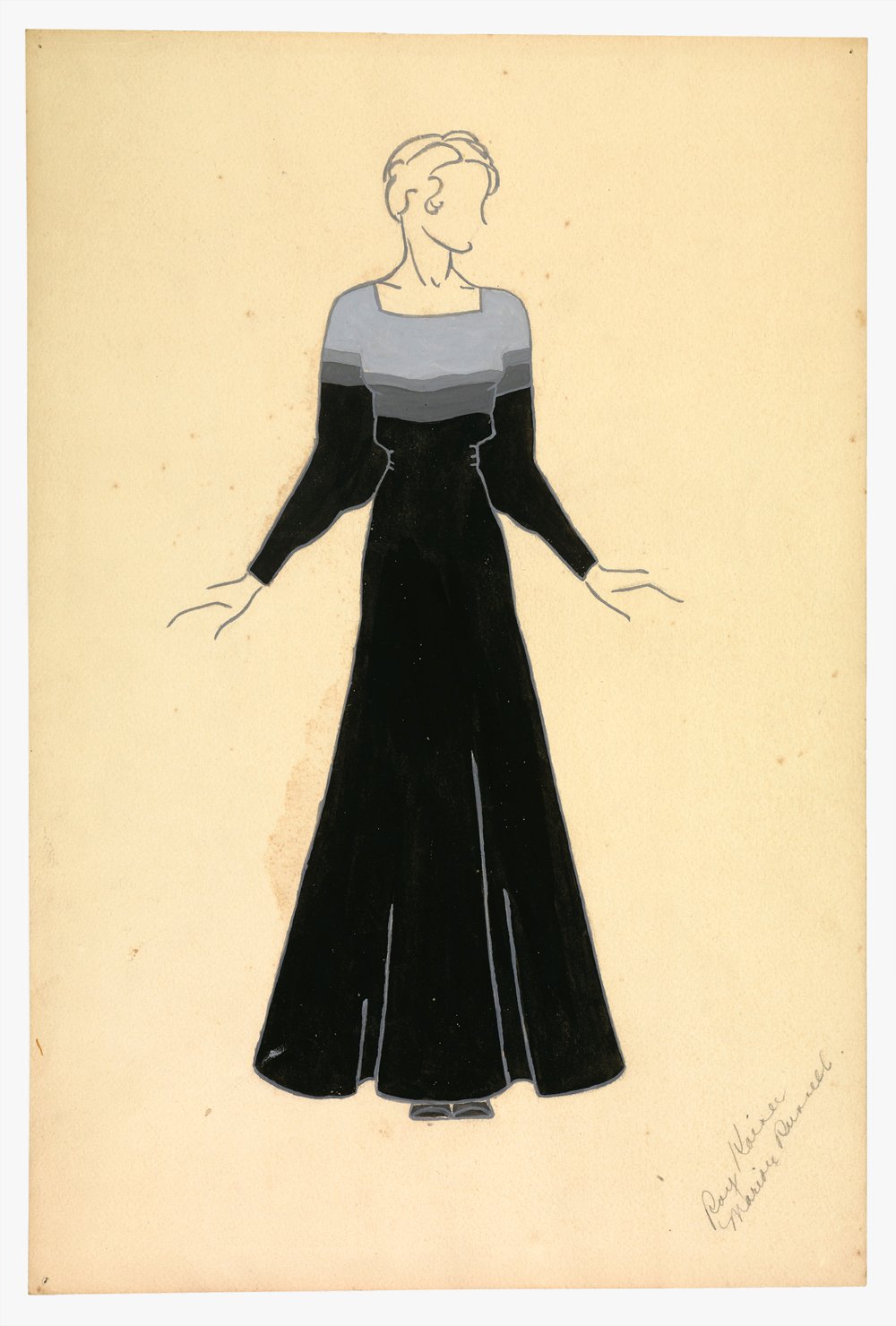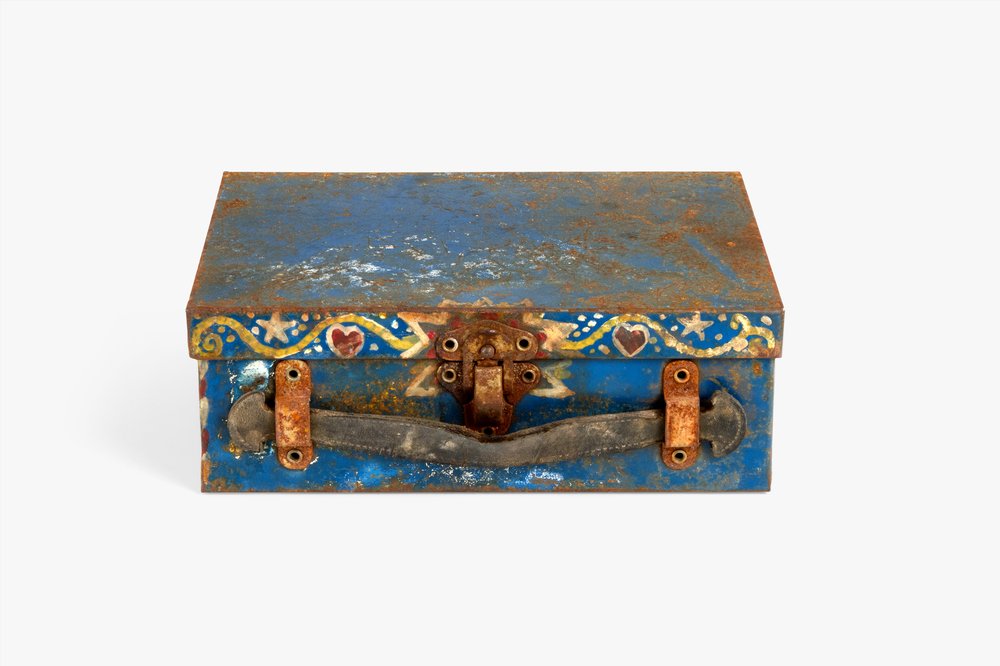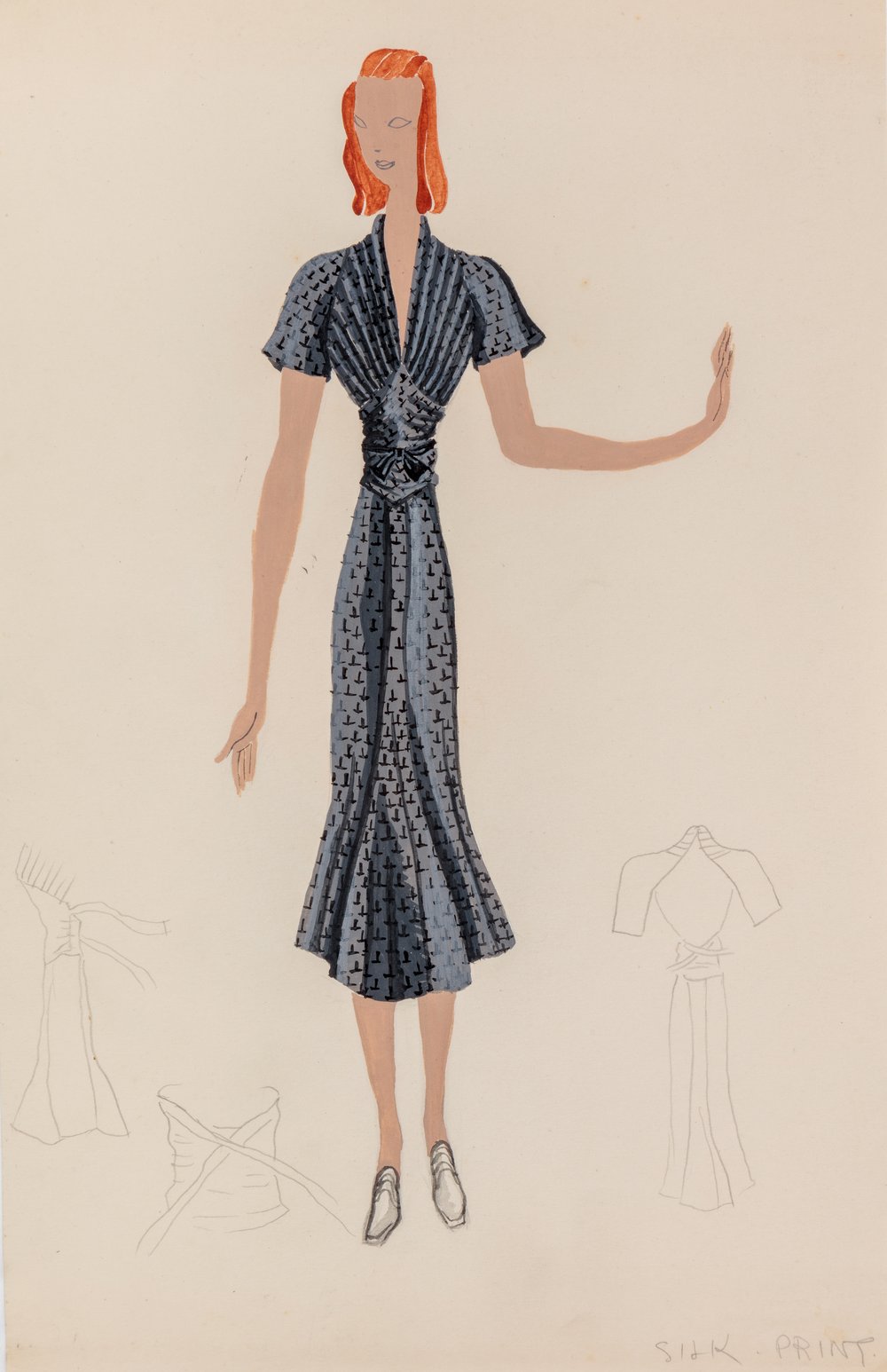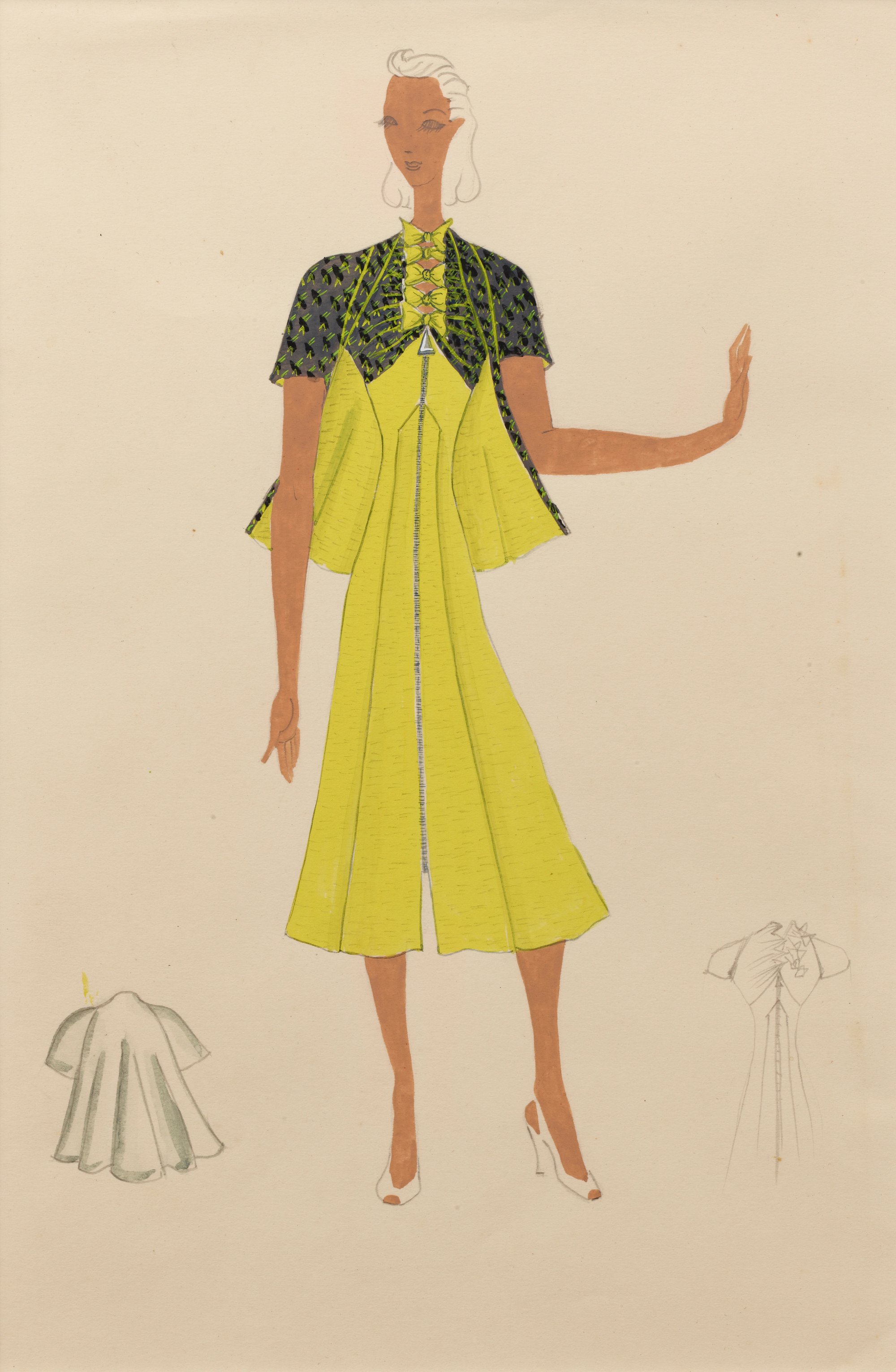Before They Were the Eameses
Fashion Drawing: Yellow Day Dress with Black and Yellow Jacket
Ray Kaiser
1938-1939
At twenty, Ray wrote to her mother declaring that she wanted to earn a living in “commercial art, either advertising or costume design.” Six years later, she wrote again saying that her friend Eleanor McClatchy “told me that ‘Fran’ (Francis Hayes) was to give a concert in February and wanted a costume, so I drew up several designs and sent them to Eleanor—who seemed to like them very much.”
- Medium:Ink, watercolor, and graphite on paper
- Credit Line:Image courtesy of Eames Office
- Item:A.2019.2.029
Curatorial Notes
Given the uncolored pencil-sketched hair and the angular treatment of the model’s left arm, this drawing was probably made by Ray at about the same time she drew A.2019.2.030 [Floor-Length Dress, 1938–1939]. In this case, she created a high-waisted dress of solid yellow with a black and white printed bodice and matching short-sleeved bolero jacket lined in the same yellow fabric of the dress. Six yellow bows fill the gap in the bodice from neck to bosom while continuing the yellow accent against the printed black bodice and open jacket. Just below them is the large, decorative zipper pull closing the center-front of the dress.
At the lower left of the figure is a pencil sketch of the back of the jacket; on the lower right, a pencil sketch of the front view of the dress without the jacket shows cap-sleeves. Ray worked out all the details as if she were a fashion designer planning to actually make the ensemble for a client.
The shoes are a helpful clue to the dating of this drawing: they are open-toed sling-back high heels—a style that did not come into fashion until 1938 when they first appear in fashion magazines. Given Ray’s early artistic interests, she would have been familiar with the latest styles in the fashion magazines easily available from newspaper and magazine stands on the streets of New York.
— Dale Carolyn Gluckman
At the lower left of the figure is a pencil sketch of the back of the jacket; on the lower right, a pencil sketch of the front view of the dress without the jacket shows cap-sleeves. Ray worked out all the details as if she were a fashion designer planning to actually make the ensemble for a client.
The shoes are a helpful clue to the dating of this drawing: they are open-toed sling-back high heels—a style that did not come into fashion until 1938 when they first appear in fashion magazines. Given Ray’s early artistic interests, she would have been familiar with the latest styles in the fashion magazines easily available from newspaper and magazine stands on the streets of New York.
— Dale Carolyn Gluckman



